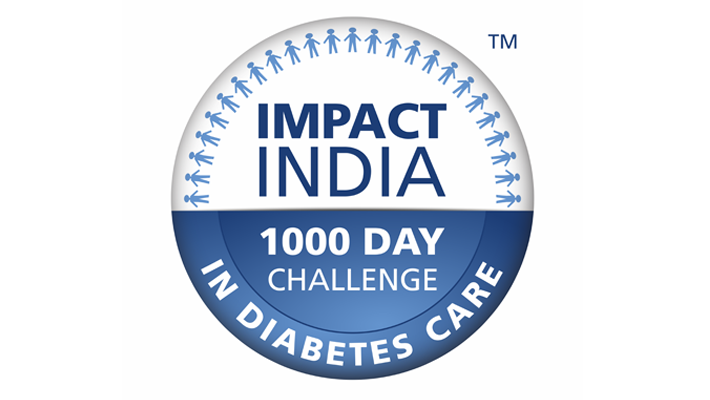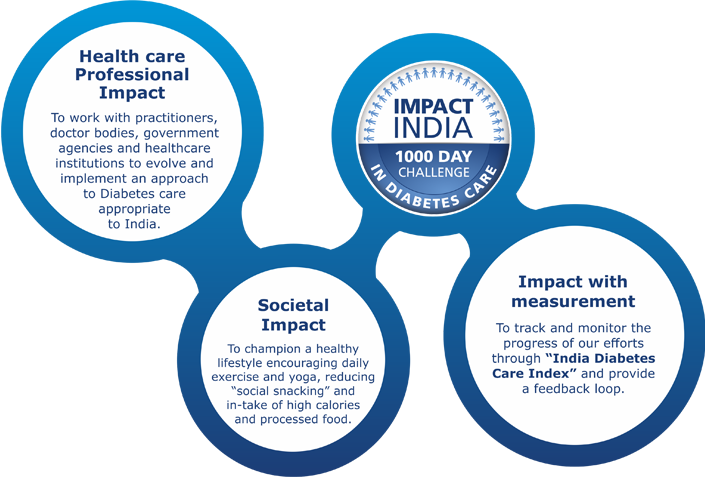
IMPACT India: A 1000 day challenge
Background
Year on year, the number of people with diabetes is increasing1. Inspite of consistent & non tiring efforts, nearly 80% of the people with diabetes in India do not meet the recommended HbA1c goals2. Uncontrolled diabetes can lead to serious complications, increasing social and economic burden.
In order to positively impact and move the needle on the current state of diabetes control in India, there is a need for likeminded stakeholders to work together and evolve an approach to Diabetes Care suited to the Indian reality.
Project Objective
To reduce the HbA1c levels of the people with diabetes in India by 1% over the next 1000 days, thereby reducing the risk of complications and the economic burden.
We estimate that by doing this we may reduce the risk of3,4,5 Stroke by 12%, Heart attack by 14%, Diabetic eye disease by 31%, Diabetic kidney disease by 33% and Diabetic limb disease by 43% in patients with diabetes. This will significantly improve the health of India while dramatically reducing the cost of care by preventing costly complications like Heart Attacks, Kidney Failure, Blindness etc.
Impact India – The 1000 Day Challenge
Novo Nordisk Education Foundation (NNEF) in partnership with Novo Nordisk will work together with like-minded stakeholders in the field of diabetes management to evolve the current state of diabetes control. On 13 November 2018, we will take a pledge to reduce HbA1c by 1% over the next 1000 days, which will also considerably reduce the risk of associated complications. At the launch event we will present the current index of diabetes control in India. Every three months, this index will be updated and shared as a tracker of progress.
We will adopt a three pronged approach to achieve this objective:
- Leverage digital platforms and tools, work with practitioners, doctor bodies, government agencies and healthcare institutions to evolve and implement an approach to diabetes care appropriate to India.
- Work at the societal level and champion a healthy lifestyle. Encourage daily exercise and yoga, reduce “social snacking” and in-take of high calorie and processed food.
- Periodically share an “India Diabetes Care Index” (a measure indicative of the state of care) on an all-India level by key cities. This will enable us to track and monitor the progress of our efforts, acting as a feedback loop.
We intend to celebrate 2021 as the year when Diabetes Care turned the corner in India, A fitting tribute to 100 years of Insulin.
References
1. International Diabetes Federation. IDF Diabetes Atlas, 8th edn. Brussels, Belgium; http://diabetesatlas.org
2. Mohan V et al. IJEM. 2014;18(3):370-378
3. Stratton IM et al. BMJ. 2000;321(7258):405-12;
4. Bilous R. Diabetic Medicine. 2008;25(2):25-29
5. Kohner EM et al. Diabetic Medicine. 2008;25(2):20-24
Take a pledge

